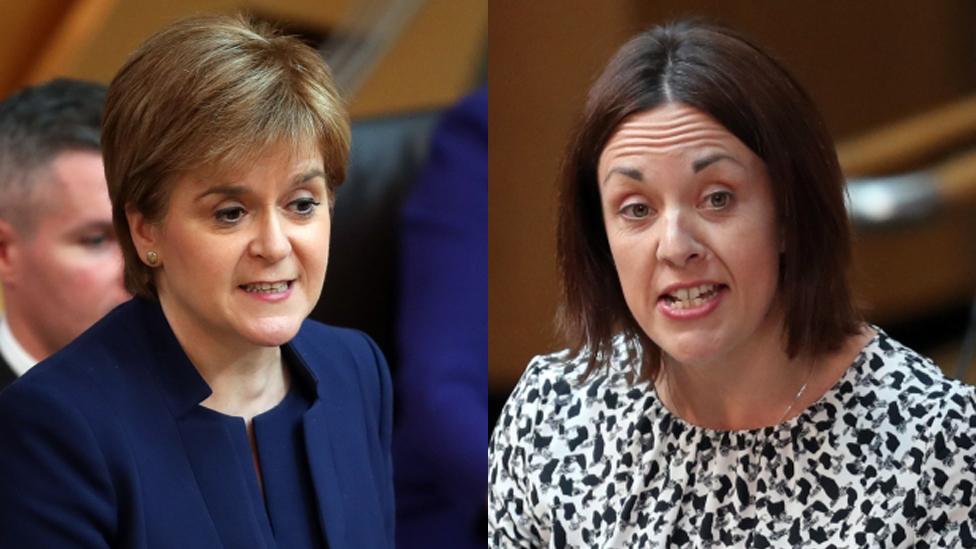FMQs: the final spat of the campaign
- Published
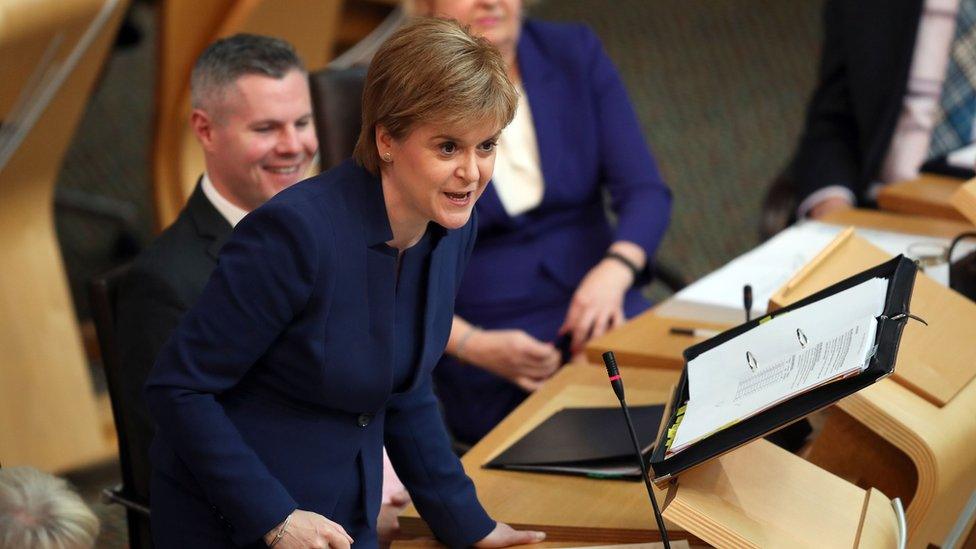
Nicola Sturgeon continued a row with Kezia Dugdale at FMQs
Is the word "clype", I wonder, included in the lexicon of parliamentary terms? I only ask because it has featured en passant in the contention over the alleged chat between Nicola Sturgeon and Kezia Dugdale.
Actually, there is another reason for inquiring. Which is that the Presiding Officer, Ken Macintosh, seemed decidedly zealous in excluding certain words today.
He was not happy with the word "liar". He was leery about "untrue". Kezia Dugdale talked of "fake news" but seemed to get away with it.
The underlying topic? The claim by Nicola Sturgeon in a TV debate that she had a private chat with Ms Dugdale just after the EU Referendum last year in which the Labour leader suggested that she might be up for a plebiscite on independence, given the changed circumstances.
On the telly, Ms Dugdale insisted she would do nothing to damage the Union. Later, she denounced the FM's account as a "categoric lie".
And "clype"? That was the verdict of the Scottish Conservative leader Ruth Davidson who reckoned it was a bit off to be recounting a supposedly private conversation.
Does any of this matter? By comparison with the state of the economy and global security, the answer must be no.
The defining point is that the row has yet to become a "gate". Kieran Andrews of The Courier, on the telly with me commenting on First Minister's Questions, valiantly suggested "Dug-gate". Will that run or, indeed, trot?
Still, in the context of a Scottish contest which has been largely about constitutional matters, both Brexit and indyref2, it is an intriguing spat with which to close; a source of innocent merriment.
Climate change?
A little context, first. A wee while back, Kezia Dugdale was indeed mulling over whether it would make sense, tactically, for Labour to endorse or tolerate indyref2. That was, indeed, in the context of claims that the political climate might have changed as a consequence of the Brexit vote.
To be clear, had the party followed such a path, they would have been backing the concept of popular choice. Not independence, per se. They would have been permitting or facilitating a campaign in which they would have continued to argue for a No vote.
In the event, after fairly swift consideration, Labour opted to take a different path. To stand against both independence - AND a further referendum.
But that period of introspection - and one injudicious remark by Jeremy Corbyn - have allowed the Conservatives to construct an entire narrative to the effect that only they, the Tories, can be trusted ineluctably with the Union.
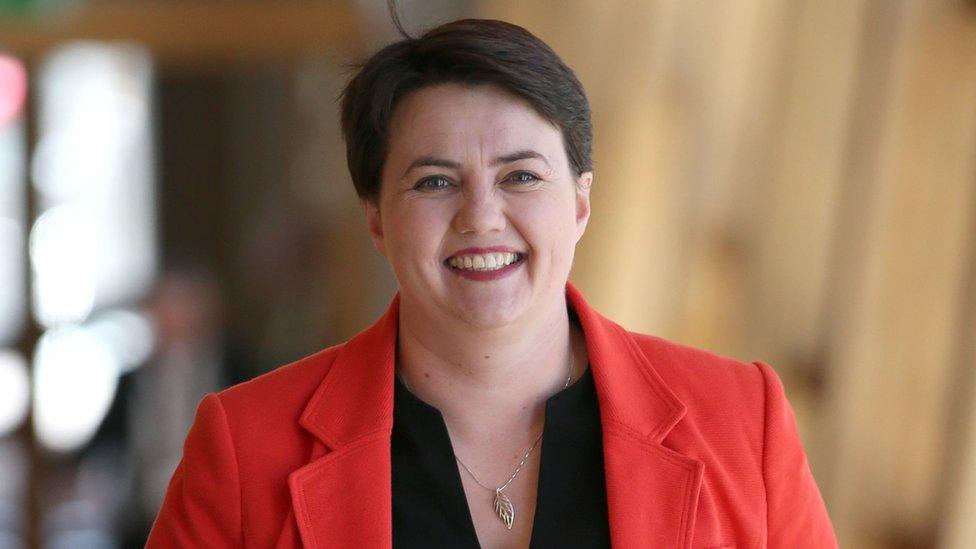
Ruth Davidson is quite pleased that the focus is on Labour and independence
Ms Davidson pursued just such a path today. While also chastising the FM - with rigid sincerity - for publicising a private conversation.
In response, Ms Sturgeon said that it was Ms Dugdale who had first disclosed the existence of the chat, in a newspaper interview. In essence, her answer was "hard cheese".
Further, the first minister asserted that her account was 100% accurate. It was reasonable, she said, for Ms Dugdale to change her mind. But not to chastise those who had stayed the course of backing indyref2.
Couple of further points. Was this a planned attack by the FM? Up to a point, yes. She undoubtedly had the issue in mind, she had the topic up her sleeve, if you like.
Sturgeon's counter-attack
The chance arose when she was being pursued over the question of indyref2 by Ms Dugdale. Ms Sturgeon decided to counter-attack, with the claim she had on hand.
But does the claim not tend to benefit the Conservatives in that it bolsters their claim to be the most fervent Unionists?
Again, up to a point. The FM's calculation will be that she cannot challenge Ruth Davidson directly over her Unionism. If that is the defining issue for an individual voter, then that voter will already be potentially lost.
So Ms Sturgeon attacks Ms Davidson over other issues: the economy; benefits; the "rape clause"; changing tack over Brexit; compliance with Theresa May. All designed to depict the SNP, by contrast, as "standing up for Scotland".
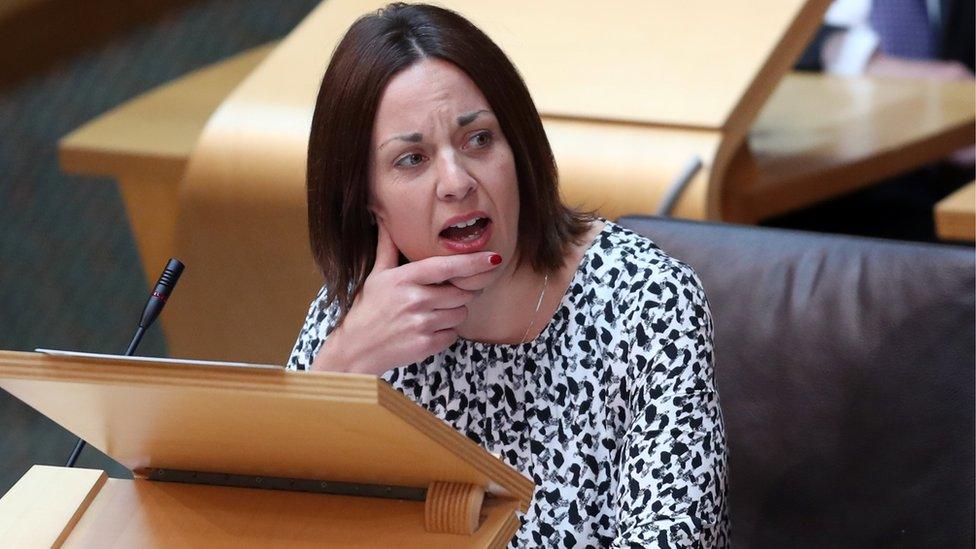
Kezia Dugdale was unimpressed with Nicola Sturgeon, but struggled to find parliamentary words
Her calculation, further, will be that the attack weakens Ms Dugdale in areas which, historically and over a prolonged period, voted Labour but have recently switched to the SNP.
Further, the controversy - and its reminder of a period when Labour was vacillating vaguely on indyref2 - helps explain the vigour and verve with which Ms Dugdale addressed the topic while launching her manifesto.
Then, she said, Labour would "never" come round to endorsing a referendum.
And was there more today? Of course. Much more. Ms Dugdale challenged the FM over her record on the NHS.
Willie Rennie of the Liberal Democrats pursued Ms Sturgeon over an issue he has made his own, mental health. And Patrick Harvie of the Greens questioned the FM over climate change.
Anything else? Personally, I liked Labour's Neil Findlay on the subject of compliant questions from SNP backbenchers.
Hey, all governments do it, knowing that they face stinkers from their rivals. But Mr Findlay drily suggested there were so many planted questions, the exchanges should be renamed "Gardeners Question Time". Nice one.
- Published7 June 2017
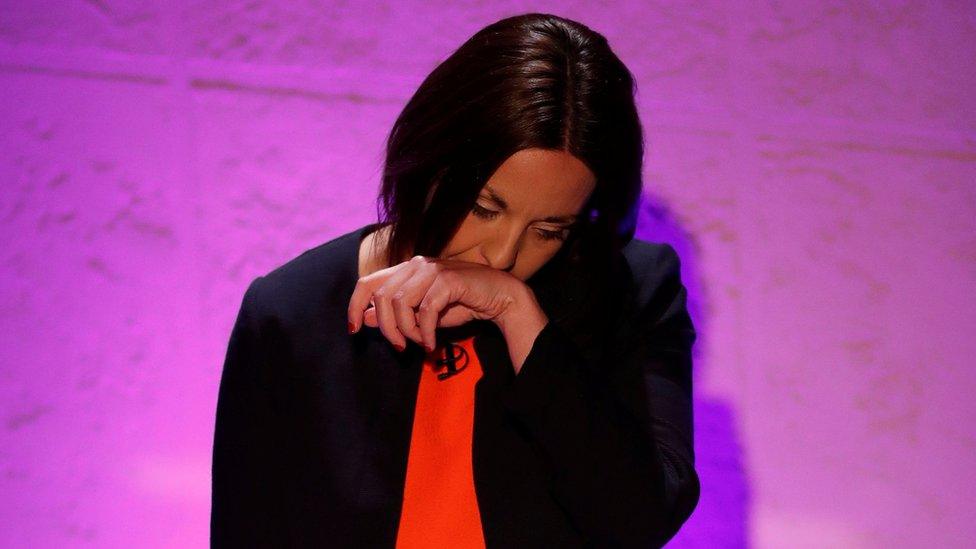
- Published7 June 2017
